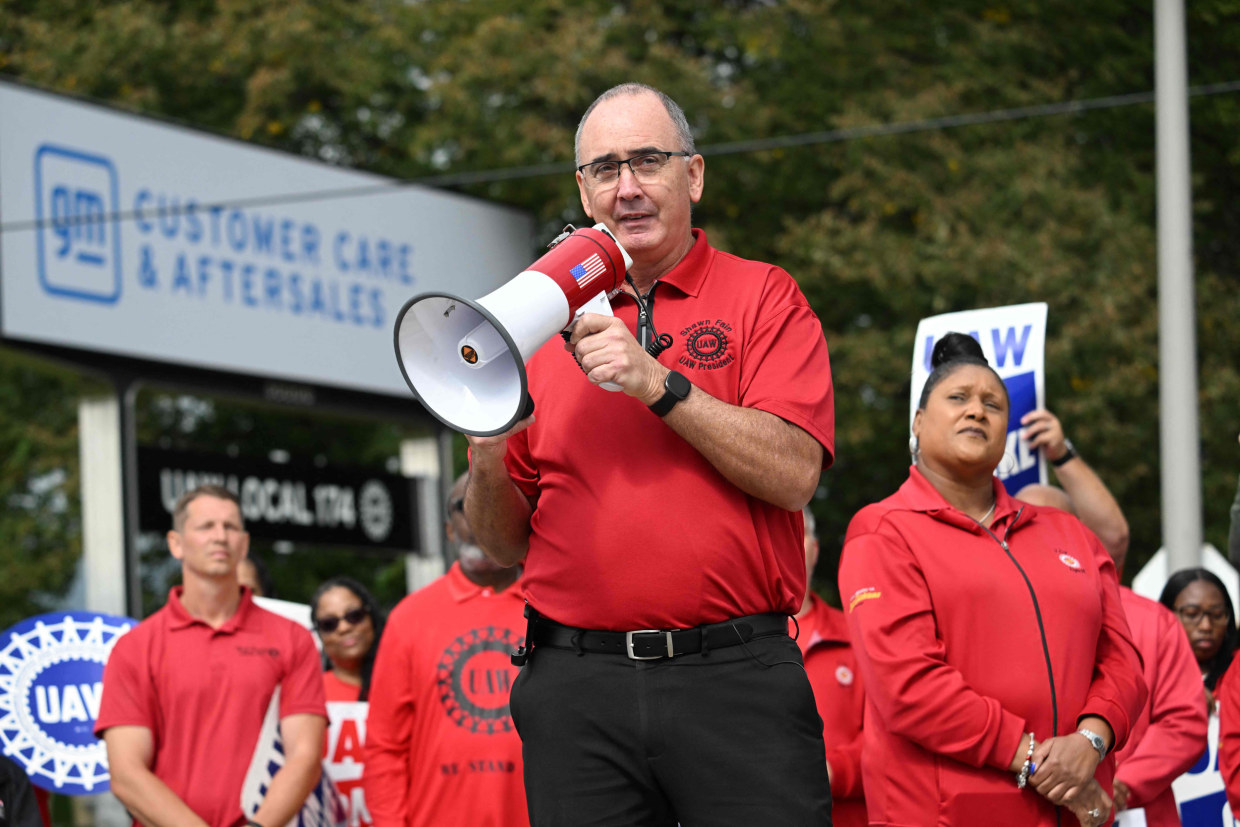Tensions Rise: Trump's Rally in Michigan Amid UAW Strike Draws Ire
September 16, 2023

Shawn Fain, the head of United Auto Workers, has firmly stated that he will not be holding a meeting with former President Donald Trump while Trump visits a Michigan production facility. This visit just so happens to coincide with the ongoing autoworker strike. In an interview with CNN, Fain expressed his disdain for the former president's rally for union members at a nonunion business, calling it a "pathetic irony."
Fain went on to emphasize Trump's track record, particularly during the 2008 recession when Trump, in Fain's view, unfairly blamed UAW members and their contracts for the automotive industry's problems. Fain also accused Trump of being nonresponsive during a major strike in the past, stating, "The ultimate show of how much he cares about our workers was in 2019 when he was the president of the United States." During September and October that year, there was a strike by General Motors workers that he didn't show support for, according to statements he made.
When asked about the possibility of a meeting with Trump during his visit to Detroit, Fain expressed his doubts, suggesting that Trump primarily serves the interests of the billionaire class and does't care about the concerns of the working class. Fain made it clear that his actions should not be interpreted as an endorsement of President Joe Biden. Instead, it represents his perspective on the former president's priorities. Trump's visit to Michigan aligns with the 12th day of the UAW strike. He intends to speak to the workers at an auto parts plant, although there are no plans for him to be accompanied by UAW leadership, as he is not anticipated to visit the striking workers on the picket line.
In reaction to Fain's statements, Trump expressed his anger on UAW's leadership and proposed that they should give their endorsement to him. In response, Fain articulated his apprehensions about the potential consequences of a second Trump presidency and underscored the significance of advocating for the welfare of the working class, particularly in light of what he views as a challenge to unions and labor rights. This exchange serves to underscore the persistent tensions between political figures and labor leaders in the American automotive sector.
Fain went on to emphasize Trump's track record, particularly during the 2008 recession when Trump, in Fain's view, unfairly blamed UAW members and their contracts for the automotive industry's problems. Fain also accused Trump of being nonresponsive during a major strike in the past, stating, "The ultimate show of how much he cares about our workers was in 2019 when he was the president of the United States." During September and October that year, there was a strike by General Motors workers that he didn't show support for, according to statements he made.
When asked about the possibility of a meeting with Trump during his visit to Detroit, Fain expressed his doubts, suggesting that Trump primarily serves the interests of the billionaire class and does't care about the concerns of the working class. Fain made it clear that his actions should not be interpreted as an endorsement of President Joe Biden. Instead, it represents his perspective on the former president's priorities. Trump's visit to Michigan aligns with the 12th day of the UAW strike. He intends to speak to the workers at an auto parts plant, although there are no plans for him to be accompanied by UAW leadership, as he is not anticipated to visit the striking workers on the picket line.
In reaction to Fain's statements, Trump expressed his anger on UAW's leadership and proposed that they should give their endorsement to him. In response, Fain articulated his apprehensions about the potential consequences of a second Trump presidency and underscored the significance of advocating for the welfare of the working class, particularly in light of what he views as a challenge to unions and labor rights. This exchange serves to underscore the persistent tensions between political figures and labor leaders in the American automotive sector.